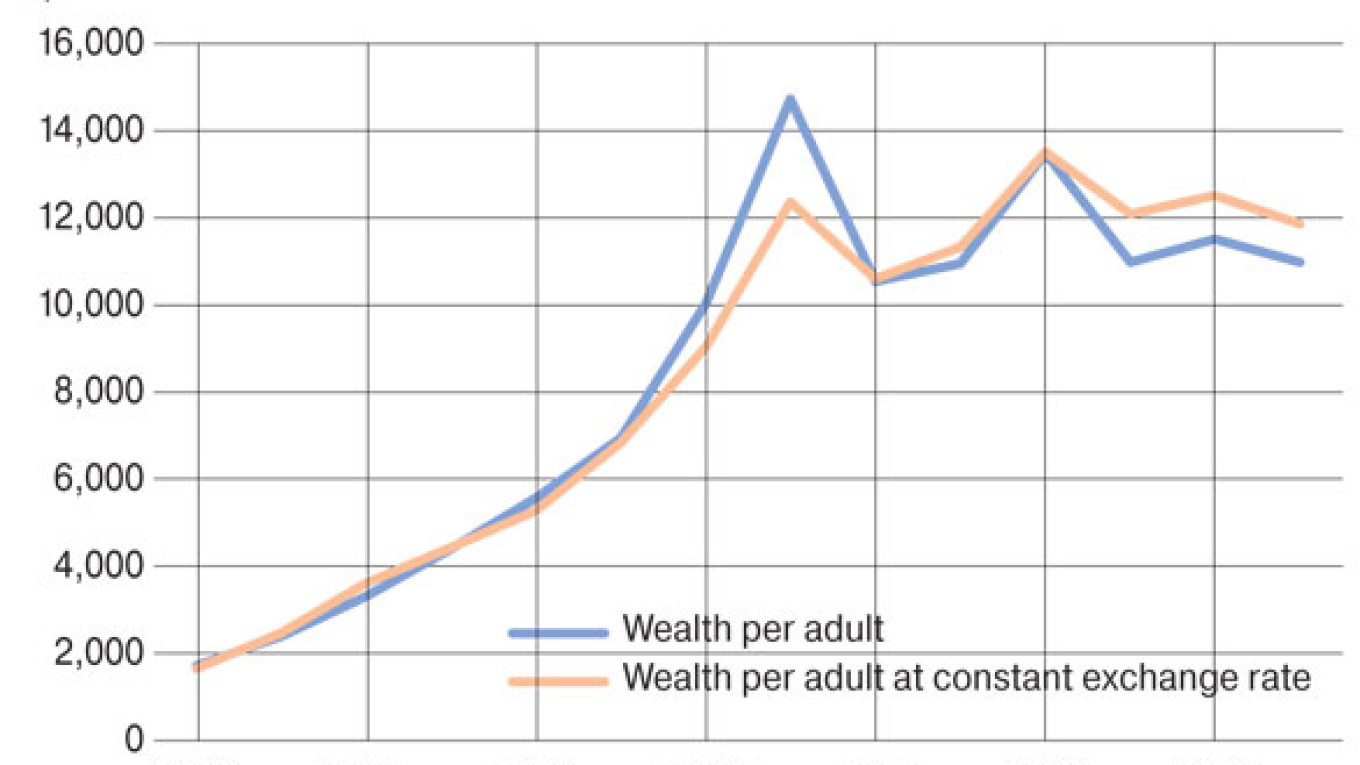Russia has one of the highest levels of wealth inequality in the world, surpassed only by a handful of tiny Caribbean states, with the country's 110 billionaires controlling 35 percent of its wealth, a report published Wednesday by Credit Suisse indicates.
The growth of world prices for oil and other natural resources — Russia's main exports — has spurred a rise in average household wealth from $1,650 in 2000 to $11,900 in 2013, but wealth per adult is still below its 2007 peak.
The gap between the country's richest and the rest of its population is one of the starkest in the world, surpassed only by small Caribbean nations with resident billionaires.
Russia has one billionaire for every $11 billion in household wealth, compared to the worldwide rate of one billionaire for every $170 billion in household wealth. Worldwide, billionaires collectively account for 1 to 2 percent of total household wealth, but in Russia 110 billionaires currently own 35 percent of all wealth.
Credit Suisse called the discrepancy a "parody" of? the hopes for a prosperous egalitarian society that some held for Russia following the Soviet Union's collapse.
Russia's 110 million adults own, on average, $10,976 in assets, but the median wealth is much lower with half of the adult population owning $871. The average wealth per adult in the U.S. is $301,000, and in Switzerland, the country with the highest wealth per adult in the world, it is $513,000.
In terms of dollars, Russia has 84,000 millionaires, and the number is expected to more than double in the next five years, reaching 133,000 by 2018, a rate of growth that surpasses those of Europe and North America but falls behind those of developing economies in Africa, the Asia-Pacific region and Latin America.
A Message from The Moscow Times:
Dear readers,
We are facing unprecedented challenges. Russia's Prosecutor General's Office has designated The Moscow Times as an "undesirable" organization, criminalizing our work and putting our staff at risk of prosecution. This follows our earlier unjust labeling as a "foreign agent."
These actions are direct attempts to silence independent journalism in Russia. The authorities claim our work "discredits the decisions of the Russian leadership." We see things differently: we strive to provide accurate, unbiased reporting on Russia.
We, the journalists of The Moscow Times, refuse to be silenced. But to continue our work, we need your help.
Your support, no matter how small, makes a world of difference. If you can, please support us monthly starting from just $2. It's quick to set up, and every contribution makes a significant impact.
By supporting The Moscow Times, you're defending open, independent journalism in the face of repression. Thank you for standing with us.
Remind me later.


